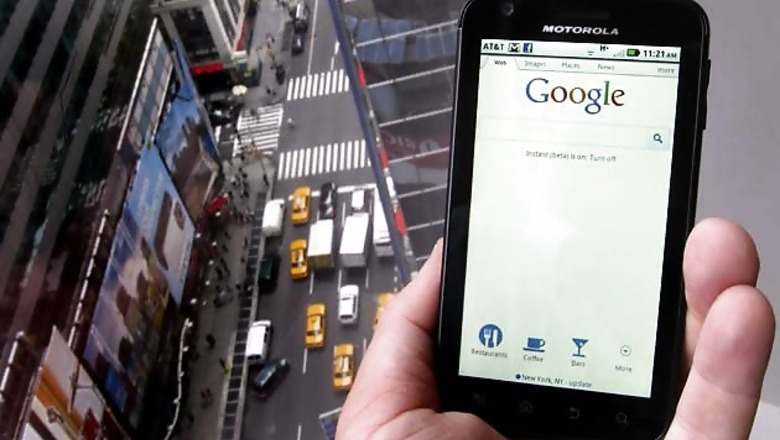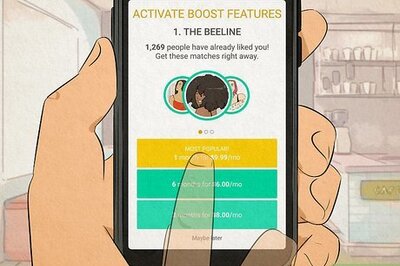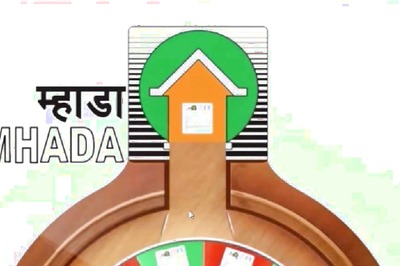
views
Chicago: A US judge on Wednesday strongly questioned Apple Inc's bid for an injunction against Google Inc's Motorola Mobility unit, as the iPhone maker tries to salvage its position on a key front in the smartphone patent wars.
Federal Judge Richard Posner in Chicago did not make any formal rulings from the bench during the hearing, which was a chance for Apple to plead its case for an injunction against Motorola phones that allegedly use its technology. But Posner called the US patent system "chaos" and said an order barring the sale of Motorola phones could have "catastrophic effects."
Posner earlier this month tentatively cancelled an impending trial between the two technology companies, but scheduled the Wednesday hearing so Apple could argue for the injunction.
Apple has waged an international patent war since 2010 as part of its attempt to limit the growth of Google's Android system, the world's best-selling mobile operating platform. A decisive injunction in one of the US legal cases could strengthen Apple's hand in negotiating cross-licensing deals, where companies agree to let each other use their patented technologies.
Opponents of Apple, meanwhile, say the iPhone and iPad maker is using patents too aggressively in its bid to stamp out the competition.
Motorola sued Apple in October 2010, a move widely seen as a preemptive strike. Apple filed its own lawsuit against Motorola the same month. Apple is also slated for trial against Samsung Electronics Co Ltd next month in California.
Posner issued a series of pretrial rulings that eliminated nearly all of Motorola's patent claims against Apple, while maintaining more of Apple's claims against Motorola. That meant Apple had more to gain at the trial, which had been set to start last week.
But Posner tentatively ruled that neither side could prove damages and scrapped the trial. An injunction would be "contrary to the public interest," Posner wrote.
In court on Wednesday, Apple attorney Matthew Powers said it is not seeking an order barring the sale of Motorola phones. Rather, Apple would be satisfied with an injunction requiring Motorola to remove Apple's patented technology from Motorola phones within three months.
That outcome would ensure the Android phones do not share some of the same features as the iPhone, a differentiation that could help Apple in the marketplace. One of the patents at issue, for instance, covers technology to stream real time video without glitches or delays.
"It means we're not competing with them where they are using our technology against us," Powers said.
But Posner said it may be preferable to direct Motorola to pay Apple a compulsory royalty. Forcing Motorola to adopt inferior technology, as opposed to paying a royalty, would not benefit consumers, he said.
In addition, nothing would stop Apple from coming back into court after three months to claim Motorola is still infringing.
"That's all we need is new actions, new suits, because there's not enough litigation worldwide between Apple and Android," Posner said.
Motorola had also asked for an injunction on the one patent it is still asserting in the case against Apple. However, Motorola had pledged to license that patent - which covers an aspect of wireless communication - on fair and reasonable terms to other companies in exchange for having the technology be adopted as an industry standard.
"I don't see how you can have injunction against the use of a standard essential patent," Posner told Motorola's attorneys.
Overall, Posner questioned the worth of many software patents, noting deep systemic problems with the US patent system.
"You can't just assume that because someone has a patent, he has some deep moral right to exclude everyone else" from using the technology, Posner said.
The case in US District Court, Northern District of Illinois, is Apple Inc and NeXT Software Inc v. Motorola Inc and Motorola Mobility Inc, 11-cv-8540.


















Comments
0 comment